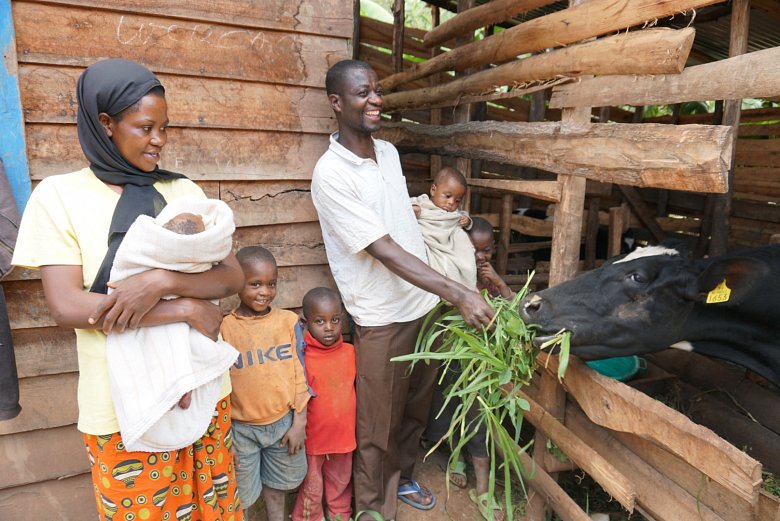Our News
Bertha in Rwanda, with Bóthar

Bertha is in Rwanda, with the charity Bóthar
Ballyvolane House Spirits Company have bought a heifer in calf, named her Bertha in honour of Bertha’s Revenge, their award-winning Irish milk gin, and sent her to rural Rwanda through Irish charity Bóthar to a family in need.
An in-calf Irish dairy heifer named Bertha recently made the 7,000 km journey from Roscrea to Rwanda, waved off fondly by her proud sponsors, Bertha’s Revenge producers Antony Jackson and Justin Green.
As part of a combined land and airlift, 20 Bóthar cows departed Roscrea Mart in Co. Tipperary to start their new lives in Rwanda, traveling to Rosslare and on to Schiphol Airport, Amsterdam, where they were loaded onto a cargo plane for their overnight flight to Kigali.
Both Antony and Justin are excited about the difference ‘Bertha 2.0’ would be making in the small village of Rwamagana, Eastern Rwanda. “From speaking to CEO Dave Moloney in Bóthar, we know that Bertha will change someone’s life,” said Antony Jackson. “We are delighted to be able to honour our gin’s namesake in this way. Bóthar has been sending cows for the past 27 years and we are thrilled that Bertha’s Revenge can play a part in making a difference to a family who really need our help.”
“Like making milk gin, earning an income from a dairy cow can be a bit of a slow process,” said fellow gin maker Justin Green. “We know that this cow will take a little bit of time before she starts earning an income for her new family, but the results will be very positive. We can’t wait to track her progress in the years to come.”
A Guinness World Record-holder as the oldest cow ever recorded, passing away just three months short of her 49th birthday (more than twice the lifespan of your average cow), the original Bertha was a legendary Droimeann cow from Sneem, Co. Kerry, who died in 1993.
Every family that receives an Irish dairy cow through Bóthar notices an immediate difference in their lives when their heifer calves and starts to produce milk. Irish dairy cows give up to 20 litres of milk per day, whereas for example the indigenous Rwandan cow produces just one litre per day. The income earned from the sale of surplus milk can mean better health, a better standard of living and better education prospects.
“We hope that Bertha in Rwanda has as equally long and productive a life as the original,” said Antony Jackson, “and it’s a lovely thought that life will hopefully become far less of a struggle for at least one family thanks to a single Irish cow.”